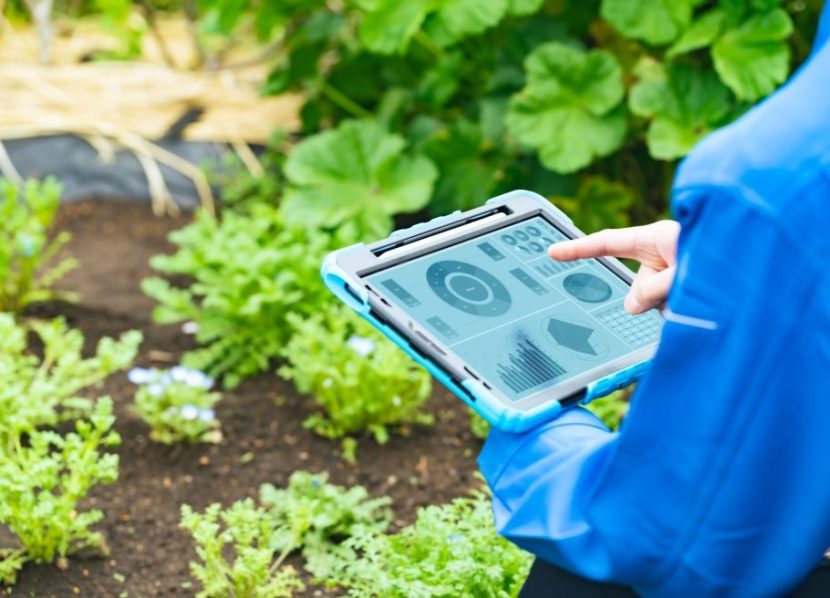How AI Technology Has the Potential to Transform the Food Industry
By Yves Rey
Artificial Intelligence (AI) is a hot topic in many industries, but its applications in food have the potential to enhance operational efficiency, revolutionize food safety and quality control, prevent fraud, and mitigate risks across the food supply chain.
It has the potential in the food industry to push boundaries in product development, refine operational processes, forge deeper connections with consumers, and develop innovative solutions for sustainability and nutrition. In agriculture, AI systems can improve the overall harvest quality, accuracy and sustainability. It’s quite literally setting the stage for a more innovative and secure future.
AI in Food and Data Analysis
In 2017, The Economist announced that data has become the world’s most valuable resource. For food professionals, data is required for decision-making in food safety and quality processes.
To stay competitive, it is essential to upskill and reskill employees, enabling them to thrive in roles that AI cannot easily replicate.
All stakeholders in the food system— from primary producers through to the consumer, and all the actors in between, including risk assessors, policymakers and communicators – rely on data.
It follows that the more relevant and accurate data the industry has, the better it can predict, assess and manage food safety and nutrition risks. The new internet era, Internet of Things (IoT), and AI with the power of interpreting big data could play an instrumental role in addressing these challenges.
In a production facility, sensors can not only monitor temperature, humidity, pressure, and time but also record other data, highlighting areas for improvement, and, in some cases make critical decisions to ensure the safety of the products is not compromised. For example, AI could help manage hazard analyses and risk-based preventive controls. In the near future, AI could outperform humans in some food safety tasks.
For multi-facility companies, a collective platform for data gathering and sharing would significantly accelerate access to global data, including consumer complaints. This could help companies make early, evidence-based decisions about providing critical alerts and give employees real-time feedback to help them anticipate potential risks.
AI and Data Sharing
The concept can be taken a step further: the food industry generates billions of analyses, but this data is not shared as it should be. The industry could set up simple intelligence networks where food stakeholders could share information and intelligence on food safety issues in a safe and secure environment.
For example, one of the most impactful applications of AI at Nestle is predictive maintenance. The project leverages sensors and machine learning to anticipate equipment failures. Ultimately, this approach enhances overall efficiency, minimizes downtime and reduces the cost of maintenance
The enhanced understanding of factors contributing to the occurrence, survival, and transmission of food-borne hazards makes possible the development of new, quicker, and more effective risk mitigation interventions.
Platforms have already been developed to share relevant food safety information between three baby food producers in Asia, which is very promising.
AI and Food Fraud
Another important topic for which data gathering and sharing can help make tremendous improvements is food fraud mitigation. A large-scale data analysis with AI support can reveal patterns related to the way that people modify food products, ingredients, or packaging for economic gain.
“Food fraud is not only an economic issue, depending on the specific incident, it can also lead to food safety hazards,” said Dr. Yinqing Ma, Director of Compliance Policy Staff, Office of Compliance, CFSAN FDA, during the second day of the 2024 GFSI Conference.
A comprehensive database of fraud-related incidents could include, among others:
- Food fraud incidents that have been officially announced by a governmental agency or inspection authority.
- Product or ingredient rejections at borders due to adulteration found during an inspection.
- Lab test analyses that indicate that there has been a substitution, or that a food was enhanced for an economic purpose.
Companies can then add more data to the mix. For example, price changes impact fraud incidents, and the probability of fraud increases for suppliers based in countries with high corruption scores. Severe weather can also be linked to an increase in food adulteration incidents in an area.
With this database of international food fraud, company leaders could predict what will happen in the future. They could look into product or ingredient categories and identify emerging fraud types before they actually occur, or calculate the probability of having fraud incidents within a particular supply chain. It is even possible to predict the specific period during which this probability is very high so that preventive measures can be taken.
A few actors in the food industry are heading in this direction by creating collaborative platforms that provide information about food fraud, but there is a long way to go before getting a critical mass of users and there are questions that remain unanswered, such as:
- Who will shoulder the cost of food fraud-related collaborative platforms?
- What are the real and perceived returns on this investment in each sector?
- Who benefits from this centralized approach? For instance, agro-enterprise interests may be different from those of regulators, or other stakeholders such as the public.
- How can align economic incentives be developed to encourage stakeholders to share food fraud data?
- Which organization should manage these collaborative platforms?
What AI Means for our Food Professionals
The future of AI in Food all has to start with fostering, supporting, and strengthening the expertise of our employees. Artificial intelligence (AI) has already had a significant impact in recent years and could have an even greater impact on the next generation of workers as it continues to advance.
Operators in the food sector must be prepared to cope with the obsolescence of their workforce’s knowledge and skills. Skills gaps are becoming increasingly acute, and the skills required for a wide variety of jobs is changing radically with the development of AI.
To stay competitive in today’s business world, it is essential to upskill and reskill employees, enabling them to thrive in roles that AI cannot easily replicate. This could involve training in areas such as data analysis, AI system management, and strategic decision-making. For example, workers might need to learn how to interpret the data generated by AI tools to make informed decisions about production processes or food safety protocols. Additionally, training in AI ethics, cybersecurity, and human-machine collaboration will become increasingly important as AI becomes more integrated into daily operations.
The integration of AI in the food industry is not just an option—it’s essential. AI’s ability to enhance operational efficiency, improve food safety, and prevent fraud is transforming how the food supply is managed. By embracing AI and investing in people, food industry leaders can build a safer, smarter, and more sustainable food system. The future of food is in our hands, and with AI as our partner, the possibilities are endless.
About the Author:
Yves Rey has had a distinguished career focusing on food safety, quality, and supply chain management. As the former Global Quality and Food Safety Officer at Danone, he played a crucial role in enhancing food safety and quality standards across the company’s international operations. Rey continues to influence the food sector through his leadership and active participation in various professional organizations.

-
 FeaturedRisk management
The Cost of a Breach: What a Cyberattack Could Mean for Food Safety Recalls
FeaturedRisk management
The Cost of a Breach: What a Cyberattack Could Mean for Food Safety Recalls
-
 FeaturedRisk management
Securing the Food Chain: How ISO/IEC 27001 Strengthens Cybersecurity
FeaturedRisk management
Securing the Food Chain: How ISO/IEC 27001 Strengthens Cybersecurity
-
 FeaturedRisk management
Revolutionizing Food Safety Training: Breaking Out of the “Check-the-Box” Mentality
FeaturedRisk management
Revolutionizing Food Safety Training: Breaking Out of the “Check-the-Box” Mentality
-
 GFSI Standards
GFSI 2025: Building Trust, Tech-Forward Solutions, and Global Unity in Food Safety
GFSI Standards
GFSI 2025: Building Trust, Tech-Forward Solutions, and Global Unity in Food Safety
-
 FeaturedFood Safety
Integrated Pest Management: Strategies to Protect Your Brand’s Reputation
FeaturedFood Safety
Integrated Pest Management: Strategies to Protect Your Brand’s Reputation
-
 FeaturedFood Safety Culture & Training
No Open Door Policy: Challenges That Impact Pest Control in Food Processing Plants
FeaturedFood Safety Culture & Training
No Open Door Policy: Challenges That Impact Pest Control in Food Processing Plants



